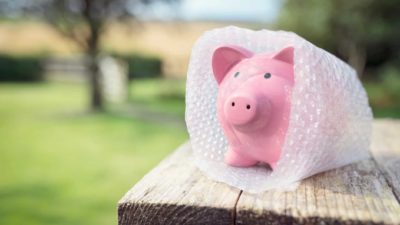Woolworths Group Ltd (ASX: WOW) shares saw plenty of volatility during the COVID-19 period. But now the economy is facing uncertain times amid inflation and higher interest rates. Could Woolworths be one of the most recession-proof stocks around?
As a supermarket business, it's understandable why investors may be looking at Woolworths shares as a defensive option because it sells food – one of the most essential products that a household needs.
We all need to eat, so even if there is a decline in economic demand for other ASX shares, I don't think it's likely that Woolworths will suffer the same fate.
Is Woolworths the most recession-proof ASX stock?
During the worrying times of March 2020, there was huge demand for Woolworths products. In fact, Christmas-time levels of demand.
The last year has shown that even though food prices have been going up, households have kept buying – what choice did they have?
If a recession were to occur, I think people are going to choose to buy food from Woolworths over buying a new TV, going on a holiday, buying new clothes, or other non-essential spending.
Certainly, I'd suggest that Woolworths' earnings are less likely to fall in a recession than those of JB Hi-Fi Limited (ASX: JBH), Super Retail Group Ltd (ASX: SUL), or Nick Scali Limited (ASX: NCK).
Let's not forget that Woolworths also owns the majority of the PETstock business – I'd guess that households will continue to spend on their furry (or non-furry) friends.
However, I'm not sure that Big W's earnings are that defensive, even though it's only a relatively small part of Woolworths' overall earnings.
We could say that Coles Group Ltd (ASX: COL) has a very similar set-up to Woolworths because of its large chain of supermarkets. But, Coles has a liquor division rather than PETstock and Big W.
I think Woolworths is right up there as one of the most recession-proof ASX stocks when it comes to its earnings.
There are a few other categories and ASX shares that I might expect to continue performing, such as funeral provider Propel Funeral Partners Ltd (ASX: PFP) because of the inevitable annual demand for its services. Telco Telstra Group Ltd (ASX: TLS) and energy infrastructure business APA Group (ASX: APA) could also see strong resilience.
Recent performance
The latest we've heard from Woolworths has been very promising. Woolworths reported that in the first six months of FY23, sales rose 4% to $33.2 billion and underlying earnings per share (EPS) grew 11.7% to 71.9 cents.
Its financials have done well and the Woolworths share price has jumped 18% in 2023 to date. But, valuation can be a risk if the share price goes too high.
According to Commsec, Woolworths shares are valued at 28x FY23's estimated earnings. I think the business is a good candidate for a recession-proof stock, but it doesn't look cheap at this price considering how high interest rates are these days.







